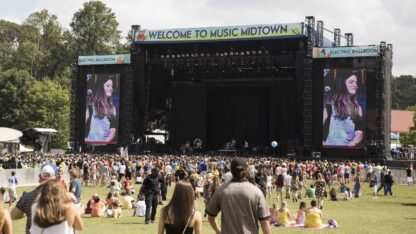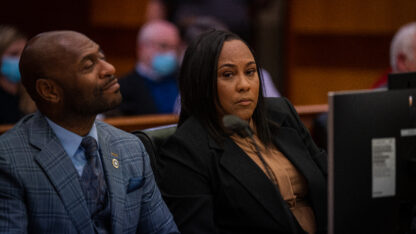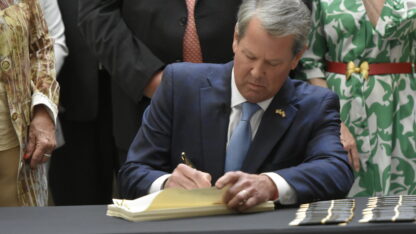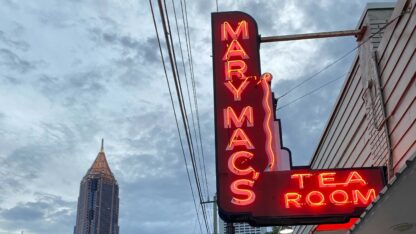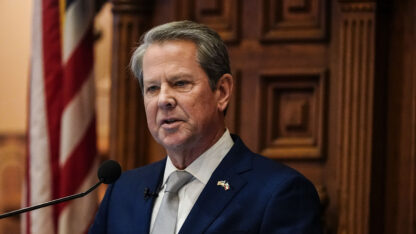Open Letter Regarding WRAS
TO: THE BOARD OF GEORGIA PUBLIC BROADCASTING AND THE BOARD OF REGENTS OF THE UNIVERSITY SYSTEM OF GEORGIA
Dear Ladies and Gentlemen:
The recent agreement between Georgia Public Broadcasting (GPB) and Georgia State University (GSU) regarding radio station WRAS is bad public policy—fiscally, substantively, and procedurally. This transaction should be revisited by the parties and it should be significantly modified or rescinded.
At its essence, this agreement involves GPB spending Georgia tax dollars to duplicate a public broadcasting service being provided by Public Broadcasting Atlanta (PBA), which operates radio station WABE to the metropolitan Atlanta listening audience since 1971. In the process, the broadcast voice at WRAS—a valuable, well-regarded GSU student-run radio station with its diverse programming—is being silenced.
GPB has announced its plans to broadcast on WRAS two widely listened to National Public Radio (NPR) shows, Morning Edition and All Things Considered, at exactly the same time that WABE airs these programs. This is an unwarranted duplication of service. It is a waste of Georgia’s tax dollars that could be better allocated elsewhere. Given the obvious and pressing budgetary needs of state and local governments in these challenging times, there can be no justification for Georgia’s tax dollars being used to bring a duplicate product to the Atlanta marketplace.
When GPB and PBA are placed side by side, they present significantly different fiscal situations. GPB is subsidized heavily by Georgia tax dollars for its operations; at best, what can be gleaned from GPB’s financial statements is that, in 2013, GPB received $13.4 million in state appropriations, some 47% of its annual operating budget.
By contrast, PBA operates a $12.6 million budget without any state or local taxpayer dollars for its operations. Twenty years ago, PBA was receiving about $1 million annually in a direct appropriation from the Atlanta Public Schools (APS) for its $4 million budget. By paying close attention to the public media needs of the Atlanta community and offering programming and services which meet those needs, PBA, a 501(c)(3) non-profit organization, completely eliminated the Atlanta taxpayer operating support which APS’ annual appropriation represented, became self-sufficient, more than tripled its operating budget, and dramatically increased its audience share. This was achieved by significantly broadening its individual membership and institutional underwriting support.
PBA has and will continue to evolve its programming to meet the community’s needs. Based on research and strategic planning, over the past few years, PBA has been adding news coverage (much of it local) and arts and cultural programming responsive to the needs and interests of our community. These facts speak to the successful manner in which PBA has served the citizens of Atlanta and further emphasizes the folly of GPB’s planned wasteful intrusion into the Atlanta market.
WRAS at GSU has been a prominent student-run radio operation, with a substantial following in the Atlanta community. A number of prominent journalists and radio personalities, active in both commercial and noncommercial broadcasting, began their careers at WRAS. WRAS’ music programming has been influential in the Atlanta marketplace and its contributions to diverse programmatic offerings are unquestioned. The GPB-GSU agreement would end this legacy, though I note that more than 10,000 individuals including GSU students and alumni, have signed a petition protesting this contract and seeking to reverse this action.
Procedurally, relevant WRAS stakeholders were excluded from the process and not given an opportunity to have input on this extremely important matter. Had all relevant stakeholders been provided the chance to share their views on this, many of the problems this arrangement presents would have come to light and could have been appropriately factored into a decision.
The transaction begs the question of why GPB has pursued this arrangement. The apparent reason is that, notwithstanding its very high amount of Georgia taxpayer funding, GPB desires to cut into PBA’s Atlanta community fundraising base. GPB’s management characterizes its actions as “competition.” Unfortunately, with this characterization, GPB is missing the mark badly. Competition in public broadcasting is not intended to mimic the practices of commercial broadcasting. Noncommercial broadcasting is carried out on behalf of the public trust and the resources available to such broadcasting are limited. Public broadcasting, as a national institution, remains constantly vigilant about maintaining its public and community support. One public broadcasting service using its Georgia taxpayer funded position to undermine the Atlanta community support of another public broadcasting service is irresponsible.
As fellow public broadcasters, GPB and PBA should be colleagues, instead of competitors. PBA is licensed to serve Atlanta; GPB’s focus is the State of Georgia. Our missions should be complementary in such a way that we work together to broaden and improve our services. The WRAS agreement is antithetical to the spirit of collaboration and to the stewardship of the limited resources entrusted to us for providing services to the public. We call upon those involved at GPB, GSU, and the Board of Regents to rethink this matter and to recognize the impending waste of Georgia taxpayer dollars, duplication of services, and the elimination of a vital and distinct student run radio voice in our community. We believe that if this happens, a different conclusion will be reached and a more enlightened course of action will be pursued.
___________________________________
DR. LOUIS W. SULLIVAN, CHAIRMAN
ON BEHALF OF PUBLIC BROADCASTING ATLANTA’S BOARD OF DIRECTORS
9(MDAxODM0MDY4MDEyMTY4NDA3MzI3YjkzMw004))
